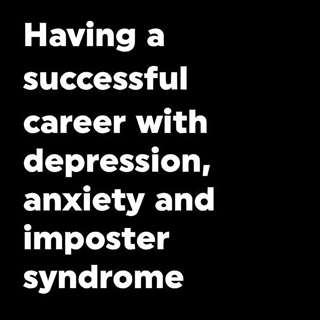
#90 Classic episode – Ajeya Cotra on worldview diversification and how big the future could be
You wake up in a mysterious box, and hear the booming voice of God: “I just flipped a coin. If it came up heads, I made ten boxes, labeled 1 through 10 — each of which has a human in it. If it came up tails, I made ten billion boxes, labeled 1 through 10 billion — also with one human in each box. To get into heaven, you have to answer this correctly: Which way did the coin land?”You think briefly, and decide you should bet your eternal soul on tails. The fact that you woke up at all seems like pretty good evidence that you’re in the big world — if the coin landed tails, way more people should be having an experience just like yours.But then you get up, walk outside, and look at the number on your box.‘3’. Huh. Now you don’t know what to believe.If God made 10 billion boxes, surely it’s much more likely that you would have seen a number like 7,346,678,928?In today’s interview, Ajeya Cotra — a senior research analyst at Open Philanthropy — explains why this thought experiment from the niche of philosophy known as ‘anthropic reasoning’ could be relevant for figuring out where we should direct our charitable giving.Rebroadcast: this episode was originally released in January 2021.Links to learn more, summary, and full transcript.Some thinkers both inside and outside Open Philanthropy believe that philanthropic giving should be guided by ‘longtermism’ — the idea that we can do the most good if we focus primarily on the impact our actions will have on the long-term future.Ajeya thinks that for that notion to make sense, there needs to be a good chance we can settle other planets and solar systems and build a society that’s both very large relative to what’s possible on Earth and, by virtue of being so spread out, able to protect itself from extinction for a very long time.But imagine that humanity has two possible futures ahead of it: Either we’re going to have a huge future like that, in which trillions of people ultimately exist, or we’re going to wipe ourselves out quite soon, thereby ensuring that only around 100 billion people ever get to live.If there are eventually going to be 1,000 trillion humans, what should we think of the fact that we seemingly find ourselves so early in history? Being among the first 100 billion humans, as we are, is equivalent to walking outside and seeing a three on your box. Suspicious! If the future will have many trillions of people, the odds of us appearing so strangely early are very low indeed.If we accept the analogy, maybe we can be confident that humanity is at a high risk of extinction based on this so-called ‘doomsday argument‘ alone.If that’s true, maybe we should put more of our resources into avoiding apparent extinction threats like nuclear war and pandemics. But on the other hand, maybe the argument shows we’re incredibly unlikely to achieve a long and stable future no matter what we do, and we should forget the long term and just focus on the here and now instead.There are many critics of this theoretical ‘doomsday argument’, and it may be the case that it logically doesn’t work. This is why Ajeya spent time investigating it, with the goal of ultimately making better philanthropic grants.In this conversation, Ajeya and Rob discuss both the doomsday argument and the challenge Open Phil faces striking a balance between taking big ideas seriously, and not going all in on philosophical arguments that may turn out to be barking up the wrong tree entirely.They also discuss:Which worldviews Open Phil finds most plausible, and how it balances themWhich worldviews Ajeya doesn’t embrace but almost doesHow hard it is to get to other solar systemsThe famous ‘simulation argument’When transformative AI might actually arriveThe biggest challenges involved in working on big research reportsWhat it’s like working at Open PhilAnd much moreProducer: Keiran HarrisAudio mastering: Ben CordellTranscriptions: Sofia Davis-Fogel
12 Jan 20242h 59min

#112 Classic episode – Carl Shulman on the common-sense case for existential risk work and its practical implications
Preventing the apocalypse may sound like an idiosyncratic activity, and it sometimes is justified on exotic grounds, such as the potential for humanity to become a galaxy-spanning civilisation.But the policy of US government agencies is already to spend up to $4 million to save the life of a citizen, making the death of all Americans a $1,300,000,000,000,000 disaster.According to Carl Shulman, research associate at Oxford University’s Future of Humanity Institute, that means you don’t need any fancy philosophical arguments about the value or size of the future to justify working to reduce existential risk — it passes a mundane cost-benefit analysis whether or not you place any value on the long-term future.Rebroadcast: this episode was originally released in October 2021.Links to learn more, summary, and full transcript.The key reason to make it a top priority is factual, not philosophical. That is, the risk of a disaster that kills billions of people alive today is alarmingly high, and it can be reduced at a reasonable cost. A back-of-the-envelope version of the argument runs:The US government is willing to pay up to $4 million (depending on the agency) to save the life of an American.So saving all US citizens at any given point in time would be worth $1,300 trillion.If you believe that the risk of human extinction over the next century is something like one in six (as Toby Ord suggests is a reasonable figure in his book The Precipice), then it would be worth the US government spending up to $2.2 trillion to reduce that risk by just 1%, in terms of American lives saved alone.Carl thinks it would cost a lot less than that to achieve a 1% risk reduction if the money were spent intelligently. So it easily passes a government cost-benefit test, with a very big benefit-to-cost ratio — likely over 1000:1 today.This argument helped NASA get funding to scan the sky for any asteroids that might be on a collision course with Earth, and it was directly promoted by famous economists like Richard Posner, Larry Summers, and Cass Sunstein.If the case is clear enough, why hasn’t it already motivated a lot more spending or regulations to limit existential risks — enough to drive down what any additional efforts would achieve?Carl thinks that one key barrier is that infrequent disasters are rarely politically salient. Research indicates that extra money is spent on flood defences in the years immediately following a massive flood — but as memories fade, that spending quickly dries up. Of course the annual probability of a disaster was the same the whole time; all that changed is what voters had on their minds.Carl suspects another reason is that it’s difficult for the average voter to estimate and understand how large these respective risks are, and what responses would be appropriate rather than self-serving. If the public doesn’t know what good performance looks like, politicians can’t be given incentives to do the right thing.It’s reasonable to assume that if we found out a giant asteroid were going to crash into the Earth one year from now, most of our resources would be quickly diverted into figuring out how to avert catastrophe.But even in the case of COVID-19, an event that massively disrupted the lives of everyone on Earth, we’ve still seen a substantial lack of investment in vaccine manufacturing capacity and other ways of controlling the spread of the virus, relative to what economists recommended.Carl expects that all the reasons we didn’t adequately prepare for or respond to COVID-19 — with excess mortality over 15 million and costs well over $10 trillion — bite even harder when it comes to threats we’ve never faced before, such as engineered pandemics, risks from advanced artificial intelligence, and so on.Today’s episode is in part our way of trying to improve this situation. In today’s wide-ranging conversation, Carl and Rob also cover:A few reasons Carl isn’t excited by ‘strong longtermism’How x-risk reduction compares to GiveWell recommendationsSolutions for asteroids, comets, supervolcanoes, nuclear war, pandemics, and climate changeThe history of bioweaponsWhether gain-of-function research is justifiableSuccesses and failures around COVID-19The history of existential riskAnd much moreProducer: Keiran HarrisAudio mastering: Ben CordellTranscriptions: Katy Moore
8 Jan 20243h 50min

#111 Classic episode – Mushtaq Khan on using institutional economics to predict effective government reforms
If you’re living in the Niger Delta in Nigeria, your best bet at a high-paying career is probably ‘artisanal refining’ — or, in plain language, stealing oil from pipelines.The resulting oil spills damage the environment and cause severe health problems, but the Nigerian government has continually failed in their attempts to stop this theft.They send in the army, and the army gets corrupted. They send in enforcement agencies, and the enforcement agencies get corrupted. What’s happening here?According to Mushtaq Khan, economics professor at SOAS University of London, this is a classic example of ‘networked corruption’. Everyone in the community is benefiting from the criminal enterprise — so much so that the locals would prefer civil war to following the law. It pays vastly better than other local jobs, hotels and restaurants have formed around it, and houses are even powered by the electricity generated from the oil.Rebroadcast: this episode was originally released in September 2021.Links to learn more, summary, and full transcript.In today’s episode, Mushtaq elaborates on the models he uses to understand these problems and make predictions he can test in the real world.Some of the most important factors shaping the fate of nations are their structures of power: who is powerful, how they are organized, which interest groups can pull in favours with the government, and the constant push and pull between the country’s rulers and its ruled. While traditional economic theory has relatively little to say about these topics, institutional economists like Mushtaq have a lot to say, and participate in lively debates about which of their competing ideas best explain the world around us.The issues at stake are nothing less than why some countries are rich and others are poor, why some countries are mostly law abiding while others are not, and why some government programmes improve public welfare while others just enrich the well connected.Mushtaq’s specialties are anti-corruption and industrial policy, where he believes mainstream theory and practice are largely misguided. To root out fraud, aid agencies try to impose institutions and laws that work in countries like the U.K. today. Everyone nods their heads and appears to go along, but years later they find nothing has changed, or worse — the new anti-corruption laws are mostly just used to persecute anyone who challenges the country’s rulers.As Mushtaq explains, to people who specialise in understanding why corruption is ubiquitous in some countries but not others, this is entirely predictable. Western agencies imagine a situation where most people are law abiding, but a handful of selfish fat cats are engaging in large-scale graft. In fact in the countries they’re trying to change everyone is breaking some rule or other, or participating in so-called ‘corruption’, because it’s the only way to get things done and always has been.Mushtaq’s rule of thumb is that when the locals most concerned with a specific issue are invested in preserving a status quo they’re participating in, they almost always win out.To actually reduce corruption, countries like his native Bangladesh have to follow the same gradual path the U.K. once did: find organizations that benefit from rule-abiding behaviour and are selfishly motivated to promote it, and help them police their peers.Trying to impose a new way of doing things from the top down wasn’t how Europe modernised, and it won’t work elsewhere either.In cases like oil theft in Nigeria, where no one wants to follow the rules, Mushtaq says corruption may be impossible to solve directly. Instead you have to play a long game, bringing in other employment opportunities, improving health services, and deploying alternative forms of energy — in the hope that one day this will give people a viable alternative to corruption.In this extensive interview Rob and Mushtaq cover this and much more, including:How does one test theories like this?Why are companies in some poor countries so much less productive than their peers in rich countries?Have rich countries just legalized the corruption in their societies?What are the big live debates in institutional economics?Should poor countries protect their industries from foreign competition?Where has industrial policy worked, and why?How can listeners use these theories to predict which policies will work in their own countries?Producer: Keiran HarrisAudio mastering: Ben CordellTranscriptions: Sofia Davis-Fogel
4 Jan 20243h 22min

2023 Mega-highlights Extravaganza
Happy new year! We've got a different kind of holiday release for you today. Rather than a 'classic episode,' we've put together one of our favourite highlights from each episode of the show that came out in 2023. That's 32 of our favourite ideas packed into one episode that's so bursting with substance it might be more than the human mind can safely handle.There's something for everyone here:Ezra Klein on punctuated equilibriumTom Davidson on why AI takeoff might be shockingly fastJohannes Ackva on political action versus lifestyle changesHannah Ritchie on how buying environmentally friendly technology helps low-income countries Bryan Caplan on rational irrationality on the part of votersJan Leike on whether the release of ChatGPT increased or reduced AI extinction risksAthena Aktipis on why elephants get deadly cancers less often than humansAnders Sandberg on the lifespan of civilisationsNita Farahany on hacking neural interfaces...plus another 23 such gems. And they're in an order that our audio engineer Simon Monsour described as having an "eight-dimensional-tetris-like rationale."I don't know what the hell that means either, but I'm curious to find out.And remember: if you like these highlights, note that we release 20-minute highlights reels for every new episode over on our sister feed, which is called 80k After Hours. So even if you're struggling to make time to listen to every single one, you can always get some of the best bits of our episodes.We hope for all the best things to happen for you in 2024, and we'll be back with a traditional classic episode soon.This Mega-highlights Extravaganza was brought to you by Ben Cordell, Simon Monsour, Milo McGuire, and Dominic Armstrong
31 Dec 20231h 53min

#100 Classic episode – Having a successful career with depression, anxiety, and imposter syndrome
Today’s episode is one of the most remarkable and really, unique, pieces of content we’ve ever produced (and I can say that because I had almost nothing to do with making it!).The producer of this show, Keiran Harris, interviewed our mutual colleague Howie about the major ways that mental illness has affected his life and career. While depression, anxiety, ADHD and other problems are extremely common, it’s rare for people to offer detailed insight into their thoughts and struggles — and even rarer for someone as perceptive as Howie to do so.Rebroadcast: this episode was originally released in May 2021.Links to learn more, summary, and full transcript.The first half of this conversation is a searingly honest account of Howie’s story, including losing a job he loved due to a depressed episode, what it was like to be basically out of commission for over a year, how he got back on his feet, and the things he still finds difficult today.The second half covers Howie’s advice. Conventional wisdom on mental health can be really focused on cultivating willpower — telling depressed people that the virtuous thing to do is to start exercising, improve their diet, get their sleep in check, and generally fix all their problems before turning to therapy and medication as some sort of last resort.Howie tries his best to be a corrective to this misguided attitude and pragmatically focus on what actually matters — doing whatever will help you get better.Mental illness is one of the things that most often trips up people who could otherwise enjoy flourishing careers and have a large social impact, so we think this could plausibly be one of our more valuable episodes. If you’re in a hurry, we’ve extracted the key advice that Howie has to share in a section below.Howie and Keiran basically treated it like a private conversation, with the understanding that it may be too sensitive to release. But, after getting some really positive feedback, they’ve decided to share it with the world.Here are a few quotes from early reviewers:"I think there’s a big difference between admitting you have depression/seeing a psych and giving a warts-and-all account of a major depressive episode like Howie does in this episode… His description was relatable and really inspiring."Someone who works on mental health issues said:"This episode is perhaps the most vivid and tangible example of what it is like to experience psychological distress that I’ve ever encountered. Even though the content of Howie and Keiran’s discussion was serious, I thought they both managed to converse about it in an approachable and not-overly-somber way."And another reviewer said:"I found Howie’s reflections on what is actually going on in his head when he engages in negative self-talk to be considerably more illuminating than anything I’ve heard from my therapist."We also hope that the episode will:Help people realise that they have a shot at making a difference in the future, even if they’re experiencing (or have experienced in the past) mental illness, self doubt, imposter syndrome, or other personal obstacles.Give insight into what it’s like in the head of one person with depression, anxiety, and imposter syndrome, including the specific thought patterns they experience on typical days and more extreme days. In addition to being interesting for its own sake, this might make it easier for people to understand the experiences of family members, friends, and colleagues — and know how to react more helpfully.Several early listeners have even made specific behavioral changes due to listening to the episode — including people who generally have good mental health but were convinced it’s well worth the low cost of setting up a plan in case they have problems in the future.So we think this episode will be valuable for:People who have experienced mental health problems or might in future;People who have had troubles with stress, anxiety, low mood, low self esteem, imposter syndrome and similar issues, even if their experience isn’t well described as ‘mental illness’;People who have never experienced these problems but want to learn about what it’s like, so they can better relate to and assist family, friends or colleagues who do.In other words, we think this episode could be worthwhile for almost everybody.Just a heads up that this conversation gets pretty intense at times, and includes references to self-harm and suicidal thoughts.If you don’t want to hear or read the most intense section, you can skip the chapter called ‘Disaster’. And if you’d rather avoid almost all of these references, you could skip straight to the chapter called ‘80,000 Hours’.We’ve collected a large list of high quality resources for overcoming mental health problems in our links section.If you’re feeling suicidal or have thoughts of harming yourself right now, there are suicide hotlines at National Suicide Prevention Lifeline in the US (800-273-8255) and Samaritans in the UK (116 123). You may also want to find and save a number for a local service where possible.Producer: Keiran HarrisAudio mastering: Ben CordellTranscriptions: Sofia Davis-Fogel
27 Dec 20232h 51min

#176 – Nathan Labenz on the final push for AGI, understanding OpenAI's leadership drama, and red-teaming frontier models
OpenAI says its mission is to build AGI — an AI system that is better than human beings at everything. Should the world trust them to do that safely?That’s the central theme of today’s episode with Nathan Labenz — entrepreneur, AI scout, and host of The Cognitive Revolution podcast.Links to learn more, video, highlights, and full transcript. Nathan saw the AI revolution coming years ago, and, astonished by the research he was seeing, set aside his role as CEO of Waymark and made it his full-time job to understand AI capabilities across every domain. He has been obsessively tracking the AI world since — including joining OpenAI’s “red team” that probed GPT-4 to find ways it could be abused, long before it was public.Whether OpenAI was taking AI safety seriously enough became a topic of dinner table conversation around the world after the shocking firing and reinstatement of Sam Altman as CEO last month.Nathan’s view: it’s complicated. Discussion of this topic has often been heated, polarising, and personal. But Nathan wants to avoid that and simply lay out, in a way that is impartial and fair to everyone involved, what OpenAI has done right and how it could do better in his view.When he started on the GPT-4 red team, the model would do anything from diagnose a skin condition to plan a terrorist attack without the slightest reservation or objection. When later shown a “Safety” version of GPT-4 that was almost the same, he approached a member of OpenAI’s board to share his concerns and tell them they really needed to try out GPT-4 for themselves and form an opinion.In today’s episode, we share this story as Nathan told it on his own show, The Cognitive Revolution, which he did in the hope that it would provide useful background to understanding the OpenAI board’s reservations about Sam Altman, which to this day have not been laid out in any detail.But while he feared throughout 2022 that OpenAI and Sam Altman didn’t understand the power and risk of their own system, he has since been repeatedly impressed, and came to think of OpenAI as among the better companies that could hypothetically be working to build AGI.Their efforts to make GPT-4 safe turned out to be much larger and more successful than Nathan was seeing. Sam Altman and other leaders at OpenAI seem to sincerely believe they’re playing with fire, and take the threat posed by their work very seriously. With the benefit of hindsight, Nathan suspects OpenAI’s decision to release GPT-4 when it did was for the best.On top of that, OpenAI has been among the most sane and sophisticated voices advocating for AI regulations that would target just the most powerful AI systems — the type they themselves are building — and that could make a real difference. They’ve also invested major resources into new ‘Superalignment’ and ‘Preparedness’ teams, while avoiding using competition with China as an excuse for recklessness.At the same time, it’s very hard to know whether it’s all enough. The challenge of making an AGI safe and beneficial may require much more than they hope or have bargained for. Given that, Nathan poses the question of whether it makes sense to try to build a fully general AGI that can outclass humans in every domain at the first opportunity. Maybe in the short term, we should focus on harvesting the enormous possible economic and humanitarian benefits of narrow applied AI models, and wait until we not only have a way to build AGI, but a good way to build AGI — an AGI that we’re confident we want, which we can prove will remain safe as its capabilities get ever greater.By threatening to follow Sam Altman to Microsoft before his reinstatement as OpenAI CEO, OpenAI’s research team has proven they have enormous influence over the direction of the company. If they put their minds to it, they’re also better placed than maybe anyone in the world to assess if the company’s strategy is on the right track and serving the interests of humanity as a whole. Nathan concludes that this power and insight only adds to the enormous weight of responsibility already resting on their shoulders.In today’s extensive conversation, Nathan and host Rob Wiblin discuss not only all of the above, but also:Speculation about the OpenAI boardroom drama with Sam Altman, given Nathan’s interactions with the board when he raised concerns from his red teaming efforts.Which AI applications we should be urgently rolling out, with less worry about safety.Whether governance issues at OpenAI demonstrate AI research can only be slowed by governments.Whether AI capabilities are advancing faster than safety efforts and controls.The costs and benefits of releasing powerful models like GPT-4.Nathan’s view on the game theory of AI arms races and China.Whether it’s worth taking some risk with AI for huge potential upside.The need for more “AI scouts” to understand and communicate AI progress.And plenty more.Producer and editor: Keiran HarrisAudio Engineering Lead: Ben CordellTechnical editing: Milo McGuire and Dominic ArmstrongTranscriptions: Katy Moore
22 Dec 20233h 46min

#175 – Lucia Coulter on preventing lead poisoning for $1.66 per child
Lead is one of the most poisonous things going. A single sugar sachet of lead, spread over a park the size of an American football field, is enough to give a child that regularly plays there lead poisoning. For life they’ll be condemned to a ~3-point-lower IQ; a 50% higher risk of heart attacks; and elevated risk of kidney disease, anaemia, and ADHD, among other effects.We’ve known lead is a health nightmare for at least 50 years, and that got lead out of car fuel everywhere. So is the situation under control? Not even close.Around half the kids in poor and middle-income countries have blood lead levels above 5 micrograms per decilitre; the US declared a national emergency when just 5% of the children in Flint, Michigan exceeded that level. The collective damage this is doing to children’s intellectual potential, health, and life expectancy is vast — the health damage involved is around that caused by malaria, tuberculosis, and HIV combined.This week’s guest, Lucia Coulter — cofounder of the incredibly successful Lead Exposure Elimination Project (LEEP) — speaks about how LEEP has been reducing childhood lead exposure in poor countries by getting bans on lead in paint enforced.Links to learn more, summary, and full transcript.Various estimates suggest the work is absurdly cost effective. LEEP is in expectation preventing kids from getting lead poisoning for under $2 per child (explore the analysis here). Or, looking at it differently, LEEP is saving a year of healthy life for $14, and in the long run is increasing people’s lifetime income anywhere from $300–1,200 for each $1 it spends, by preventing intellectual stunting.Which raises the question: why hasn’t this happened already? How is lead still in paint in most poor countries, even when that’s oftentimes already illegal? And how is LEEP able to get bans on leaded paint enforced in a country while spending barely tens of thousands of dollars? When leaded paint is gone, what should they target next?With host Robert Wiblin, Lucia answers all those questions and more:Why LEEP isn’t fully funded, and what it would do with extra money (you can donate here).How bad lead poisoning is in rich countries.Why lead is still in aeroplane fuel.How lead got put straight in food in Bangladesh, and a handful of people got it removed.Why the enormous damage done by lead mostly goes unnoticed.The other major sources of lead exposure aside from paint.Lucia’s story of founding a highly effective nonprofit, despite having no prior entrepreneurship experience, through Charity Entrepreneurship’s Incubation Program.Why Lucia pledges 10% of her income to cost-effective charities.Lucia’s take on why GiveWell didn’t support LEEP earlier on.How the invention of cheap, accessible lead testing for blood and consumer products would be a game changer.Generalisable lessons LEEP has learned from coordinating with governments in poor countries.And plenty more.Producer and editor: Keiran HarrisAudio Engineering Lead: Ben CordellTechnical editing: Milo McGuire and Dominic ArmstrongTranscriptions: Katy Moore
14 Dec 20232h 14min

#174 – Nita Farahany on the neurotechnology already being used to convict criminals and manipulate workers
"It will change everything: it will change our workplaces, it will change our interactions with the government, it will change our interactions with each other. It will make all of us unwitting neuromarketing subjects at all times, because at every moment in time, when you’re interacting on any platform that also has issued you a multifunctional device where they’re looking at your brainwave activity, they are marketing to you, they’re cognitively shaping you."So I wrote the book as both a wake-up call, but also as an agenda-setting: to say, what do we need to do, given that this is coming? And there’s a lot of hope, and we should be able to reap the benefits of the technology, but how do we do that without actually ending up in this world of like, 'Oh my god, mind reading is here. Now what?'" — Nita FarahanyIn today’s episode, host Luisa Rodriguez speaks to Nita Farahany — professor of law and philosophy at Duke Law School — about applications of cutting-edge neurotechnology.Links to learn more, summary, and full transcript.They cover:How close we are to actual mind reading.How hacking neural interfaces could cure depression.How companies might use neural data in the workplace — like tracking how productive you are, or using your emotional states against you in negotiations.How close we are to being able to unlock our phones by singing a song in our heads.How neurodata has been used for interrogations, and even criminal prosecutions.The possibility of linking brains to the point where you could experience exactly the same thing as another person.Military applications of this tech, including the possibility of one soldier controlling swarms of drones with their mind.And plenty more.Producer and editor: Keiran HarrisAudio Engineering Lead: Ben CordellTechnical editing: Simon Monsour and Milo McGuireAdditional content editing: Katy Moore and Luisa RodriguezTranscriptions: Katy Moore
7 Dec 20232h






















